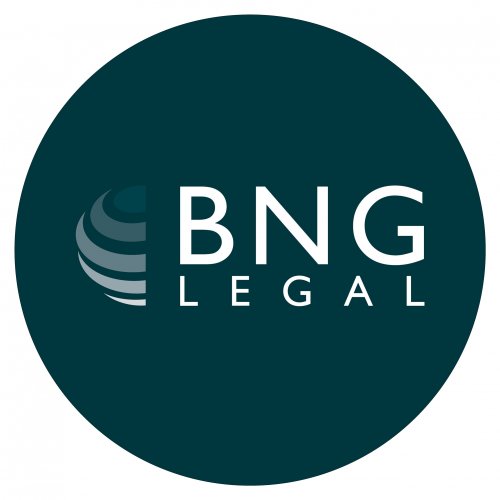Best International Trade Law Lawyers in Cambodia
Share your needs with us, get contacted by law firms.
Free. Takes 2 min.
Or refine your search by selecting a city:
List of the best lawyers in Cambodia
About International Trade Law in Cambodia
International Trade Law in Cambodia encompasses a range of regulations and agreements that govern how Cambodians engage in trade activities with foreign entities. Cambodia, a member of the World Trade Organization (WTO) since 2004, aligns its trade laws with international norms to encourage foreign investment and trade. The regulatory framework aims to facilitate trade by reducing barriers, protecting intellectual property rights, and ensuring compliance with international standards. Over the past two decades, Cambodia has experienced significant growth in exports, particularly in the garment, footwear, and agriculture sectors, making international trade laws increasingly crucial for businesses and governments alike.
Why You May Need a Lawyer
There are several situations where individuals or businesses might require legal assistance in International Trade Law in Cambodia:
- Contract Negotiation: Drafting and negotiation of international contracts to ensure compliance with Cambodian laws and international standards.
- Trade Compliance: Assistance with compliance issues related to import and export regulations, customs duties, and tariffs.
- Dispute Resolution: Handling disputes arising from international trade agreements, including mediation, arbitration, and litigation.
- Intellectual Property: Protecting trademarks, patents, and copyrights when trading internationally.
- Market Entry: Guidance on the legal requirements for entering new international markets, including understanding trade agreements and regulations.
Local Laws Overview
Cambodia's trade-related laws are largely shaped by its membership in international trade organizations and its bilateral trade agreements. Key aspects of Cambodian trade law include:
- Customs Law: Governs the import and export of goods, including duties, tariffs, and clearance procedures.
- Investment Law: Provides incentives for foreign investors and regulates foreign direct investment (FDI).
- Intellectual Property Law: Protects intellectual property rights, aligning with international treaties like the TRIPS Agreement.
- Commercial Arbitration Law: Facilitates the resolution of trade disputes through arbitration.
Cambodia also participates in regional trade agreements such as the ASEAN Economic Community (AEC) and bilateral agreements that further shape its trade landscape.
Frequently Asked Questions
What is the process for setting up an import/export business in Cambodia?
Setting up an import/export business requires registration with the Ministry of Commerce, obtaining the necessary import/export licenses, and adhering to customs regulations. Legal counsel can help navigate these processes efficiently.
What are the common tariffs and duties imposed on imported goods?
Tariffs and duties vary depending on the type of goods and the country of origin. Cambodia follows the ASEAN Harmonized Tariff Nomenclature for classification. Consultation with a trade lawyer can provide detailed insights based on specific goods.
How does Cambodia protect intellectual property in international trade?
Cambodia is a member of the World Intellectual Property Organization (WIPO) and has laws in place to protect patents, trademarks, and copyrights. Legal assistance ensures compliance and protects against infringement.
What are the penalties for non-compliance with Cambodian trade laws?
Penalties can include fines, seizure of goods, and revocation of business licenses. Legal representation can help mitigate risks and address compliance issues.
How can trade disputes be resolved in Cambodia?
Trade disputes can be resolved through negotiation, arbitration, or court proceedings. Cambodia recognizes arbitration as a valid means of dispute resolution, which can be a quicker and cost-effective alternative to litigation.
What role does the Ministry of Commerce play in international trade?
The Ministry of Commerce is responsible for regulating trade, issuing licenses, and enforcing trade laws. They are a key point of contact for trade-related matters in Cambodia.
Is it necessary to have a local partner to conduct trade in Cambodia?
While not always necessary, having a local partner can facilitate market entry and navigation of regulatory environments, especially in restricted industries.
What is Cambodia's stance on anti-dumping measures?
Cambodia has specific rules and procedures in place to defend against unfair trade practices, including anti-dumping measures aligned with WTO guidelines.
How does the ASEAN Economic Community affect trade in Cambodia?
The AEC aims to create a single market and production base, affecting tariffs and regulations, thus impacting international trade practices significantly.
Are there special considerations for exporting agricultural products?
Exporting agricultural products involves specific sanitary and phytosanitary standards. Legal guidance is essential to meet both local and international compliance requirements.
Additional Resources
Here are some resources that can assist individuals or businesses involved in international trade:
- Ministry of Commerce: The governmental body responsible for trade regulations.
- Cambodia Chamber of Commerce: Offers support for businesses engaged in trade.
- Cambodian Investment Board: Provides information and incentives related to FDI.
- World Trade Organization (WTO): Offers insights into international trade laws and agreements affecting Cambodia.
- International Finance Corporation (IFC): Supports private sector development and trade in Cambodia.
Next Steps
If you require legal assistance in International Trade Law in Cambodia, consider the following steps:
- Identify Your Needs: Clearly define the trade issue you are facing.
- Research: Gather information about potential legal firms specializing in international trade in Cambodia.
- Consultation: Schedule consultations to discuss your needs and gauge the expertise of potential lawyers.
- Engage a Lawyer: Choose a lawyer who aligns with your needs and can help navigate the legal complexities of international trade in Cambodia.
Lawzana helps you find the best lawyers and law firms in Cambodia through a curated and pre-screened list of qualified legal professionals. Our platform offers rankings and detailed profiles of attorneys and law firms, allowing you to compare based on practice areas, including International Trade Law, experience, and client feedback.
Each profile includes a description of the firm's areas of practice, client reviews, team members and partners, year of establishment, spoken languages, office locations, contact information, social media presence, and any published articles or resources. Most firms on our platform speak English and are experienced in both local and international legal matters.
Get a quote from top-rated law firms in Cambodia — quickly, securely, and without unnecessary hassle.
Disclaimer:
The information provided on this page is for general informational purposes only and does not constitute legal advice. While we strive to ensure the accuracy and relevance of the content, legal information may change over time, and interpretations of the law can vary. You should always consult with a qualified legal professional for advice specific to your situation.
We disclaim all liability for actions taken or not taken based on the content of this page. If you believe any information is incorrect or outdated, please contact us, and we will review and update it where appropriate.
Browse international trade law law firms by city in Cambodia
Refine your search by selecting a city.















